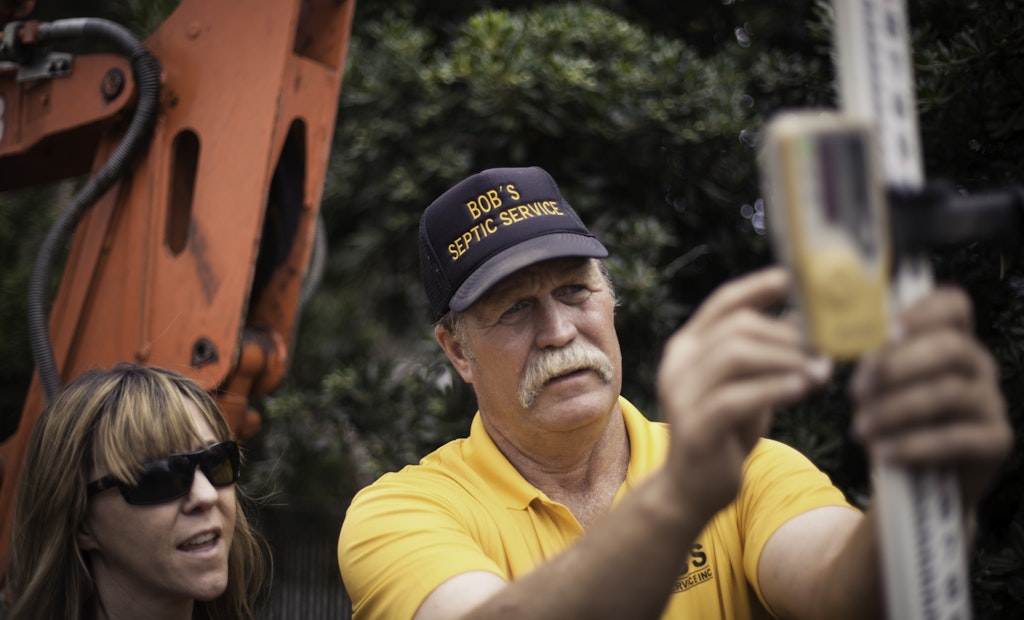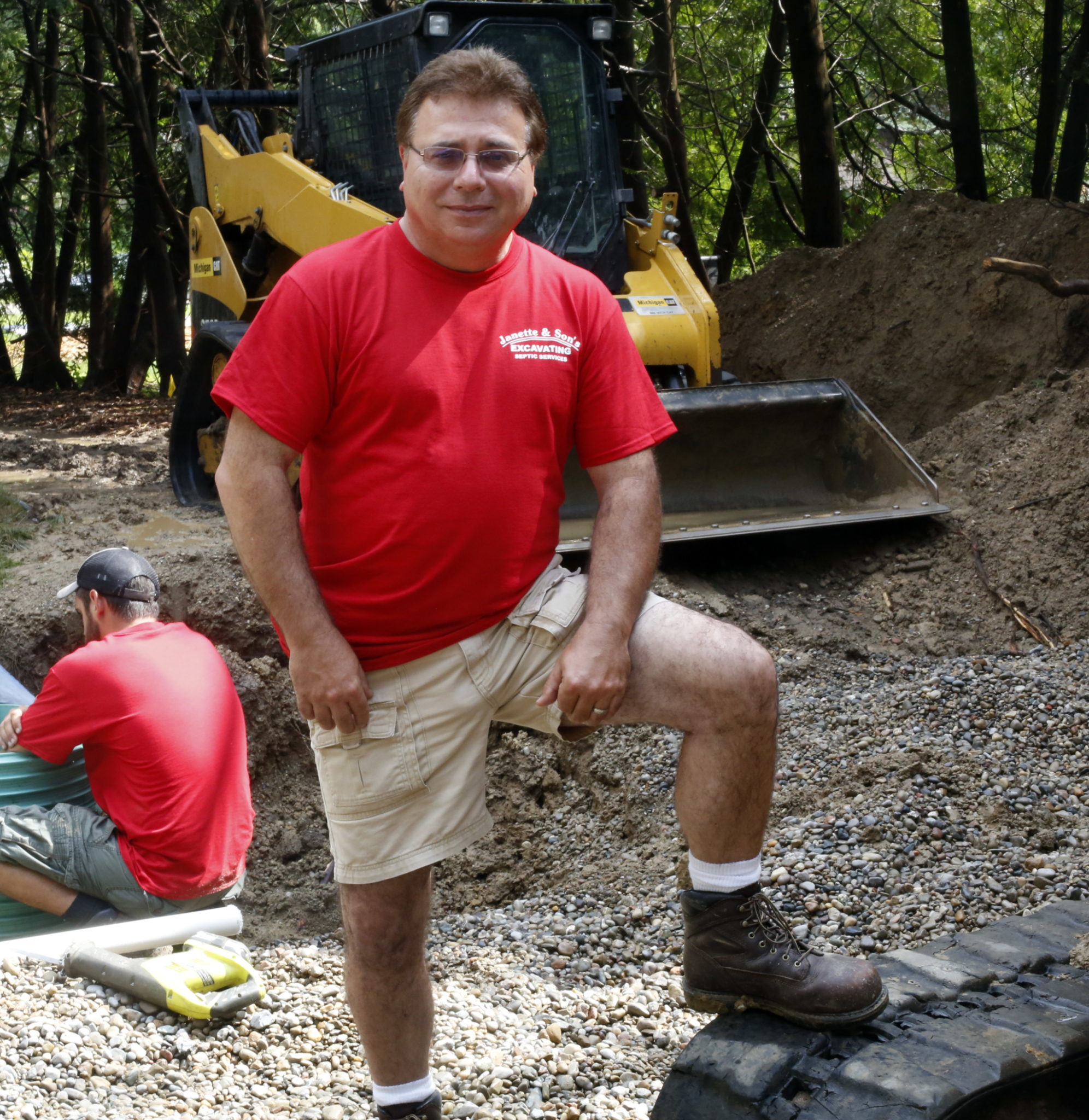Interested in Business?
Get Business articles, news and videos right in your inbox! Sign up now.
Business + Get AlertsIt’s difficult to overstate the importance of networking in the business world, and that logic certainly carries over into the onsite septic system services industry.
There are some obvious and hugely beneficial ways to do it — like attending the annual Water & Wastewater Equipment, Treatment & Transport (WWETT) Show — but we often hear stories about more unique ways to foster professional relationships during conversations with business owners for our print magazine features.
For instance, if you were to ask Bob Willis — owner of Bob’s Septic Service in Escondido, California — professional connections sometimes come from unexpected places. Punching cattle on his father’s ranch in Valley Center, Willis learned the value of hard work, handshake relationships, common sense and staying out of debt. He also learned to talk to people.
One such relationship formed while rodeo team roping ultimately led to Willis breaking into the industry. In 2004, the housing industry in northern San Diego County was booming and Bub Akans, a fellow roper and septic contractor, suggested Willis help as a subcontractor. “I bought a used 416 Caterpillar backhoe, opened my business and worked with Bub for two years,” Willis says. “He was my mentor and cheerleader, even after I earned my installer license in 2006.”
Then Jonette Durham, his office manager and Realtor, suggested another key to growing the company: focus on real estate home sales because septic inspections often uncovered needed repairs.
Willis attended real estate meetings, sponsoring the room or providing breakfast as his invitation to talk briefly about his business and help agents with septic issues. His down-to-earth approach reassured the Realtors and their clients, he explains.
The collapse of the housing market spurred the company to new heights. Although California has no standards for septic inspection, many national lending institutions and most large mortgage companies required inspection and certification before making loans. Durham’s father, a Realtor and team roper, asked Willis who to call to inspect the septic system for a property he was listing. The agents, he says, were looking for a trusted contractor who wouldn’t find something wrong with every system.
Willis began inspecting and certifying systems following the San Diego County Waste Haulers Association guidelines. “My relationship with Realtors has achieved outstanding results,” Willis says. “Today, we do three or four inspections a week, and half the systems need something fixed.”
Maintaining professional boundaries
David Janette, owner of Janette & Sons Excavating in Detroit, says his company depends on more than just good relationships with customers to stay prosperous. Relationships going in other directions are just as important.
For example, he says a logical expansion for Janette & Sons Excavating as a septic maintenance and installation business might have been into engineering so the company could become a one-stop point for wastewater services. But Janette doesn’t want it. He has very good working relationships with local engineers, and those relationships almost make his company a one-stop service provider as it is. He says he gets a number of referrals from them. Trying to start his own division would give him one more thing to worry about and would diminish the relationships he has built.
The same applies to the local health departments. “You can’t butt heads. It’s not going to get you anywhere with the government,” Janette says. The company’s good connections with health departments go back to his father, Frank, the previous owner of the company. Less engineering was done in those days, and health departments relied on contractors to find and resolve problems, so Janette’s father was often contacting health departments to inform them of some problem. “It’s the way you present yourself. Personality goes a long way. You have to be upbeat,” Janette says.
Patience also helps because government agencies sometimes resist change. With other members of his local installers association, Janette spent about four years working for a change in the health code to license installers. Previously, if a landscaper put in a wastewater system — a real situation Janette heard about — it would draw only a $50 fine from the county.
“It’s a slap on the hand,” he says. Now installers must be licensed, and at least one licensed person must be on site during an installation.
The power of PowerPoint
Another way to indirectly promote your septic services business is by educating people, according to Mike Carbonneau, owner of Connecticut Valley Design in Littleton, New Hampshire. For him, it all started when he was working to build a customer base and heard about Realtors who had lost sales because they didn’t have a septic permit, they didn’t understand a system evaluation or they overlooked details needed for permit applications. “The state returned permits because they were missing a registry book and page for deeds, a tax map and lot number, or a copy of a tax map,” Carbonneau says.
One winter, he developed a PowerPoint presentation on what had to be submitted with septic designs to expedite permits. To market the program, Carbonneau walked into real estate offices within 50 miles and delivered his sales pitch. “Many took me up on it because they love to bring new things to staff meetings,” he says.
As Carbonneau learned more about what information Realtors needed, he developed a second presentation on 10 septic systems common to the area. In layman’s terms, he explained components and how they worked. “Once they understood the vocabulary, septic designs no longer scared them,” he says.
With encouragement from Realtors, Carbonneau expanded the programs into courses approved by New Hampshire and Vermont for continuing education credits. When the New Hampshire Shoreland Water Quality Protection Act and the Vermont Shoreland Protection Act became effective in 2014, he developed a training session on how they affected real estate and septic designs.
Teaching helps Carbonneau diversify productively. “Anybody can buy a pickup truck or plow and push snow around,” he says. “Higher education developed my writing and organizational skills, enabling me to focus on training programs and designing systems — areas with scant competition.”







